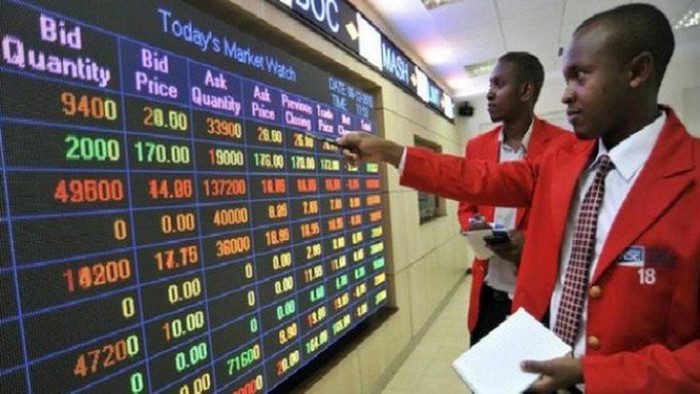Investors in the Nigerian stock market closed the weekend with a massive net capital gain of about N27 trillion, as strong inflows from both foreign and domestic investors continued to drive demand for Nigerian equities.
Trading data from the Nigerian Exchange (NGX) revealed that robust price gains across several sectors lifted the market by N2.16 trillion last week, pushing the total market capitalization so far this year to N26.87 trillion.
This figure represents a significant improvement from the N15.41 trillion total gain recorded in 2024 an increase of N11.46 trillion year-to-date.
The All Share Index (ASI), Nigeria’s key market benchmark, now stands at 146,988.04 points, up by 44,062 basis points from 102,926.40 points recorded at the start of the year. This represents a 42.81 percent average return for investors surpassing the 37.65 percent full-year return recorded in 2024.
At 42.81 percent, Nigeria currently ranks among the top five best-performing stock markets in the world.
Aggregate market capitalization of all listed equities, which opened the year at N62.763 trillion, closed the weekend at N93.296 trillion, marking a growth of 48.65 percent or N30.53 trillion.
Although the ASI reflects benchmark market returns, analysts noted that discrepancies with market value figures were due to unadjusted values from new listings.
Global Ranking and Investor Confidence
A comparative global review shows that the Nigerian stock market outperformed markets in the United States and the United Kingdom, which recorded average returns of about 15 percent. Major BRICS markets (excluding South Africa) posted less than 20 percent average returns.
Market experts attributed Nigeria’s strong performance to renewed investor confidence, a surge in foreign portfolio investments (FPIs), and consistent demand from local institutional investors.
According to the latest report, foreign portfolio inflows hit N1.45 trillion in the first eight months of 2025, representing a 121.67 percent increase from N655.47 billion in the same period of 2024.
Foreign portfolio inflows recorded the fastest growth across major indicators rising by 135.16 percent, while outflows increased by 110.33 percent, and total domestic transactions grew by 93.72 percent over the same period.
The share of foreign investors in the Nigerian market climbed to 21.01 percent, up from 18.86 percent recorded last year.
In a major global development, FTSE Russell, one of the world’s top market trackers, recently placed Nigeria on its Watch List for a potential upgrade to frontier market status, signaling growing global recognition of Nigeria’s economic progress.
Analysts React to Market Growth
Managing Director of Arthur Steven Asset Management, Mr. Olatunde Amolegbe, described the FTSE Russell consideration as a “turning point” for Nigeria’s financial markets.
“It reflects renewed confidence in Nigeria’s economic direction and is likely to attract increased foreign participation, improve liquidity, and deepen the capital markets. If Nigeria stays the course, its stock market could witness a resurgence in investor activity and valuation growth in the coming years,” Amolegbe said.
Similarly, Chief Executive of the Centre for the Promotion of Private Enterprise (CPPE), Dr. Muda Yusuf, commended recent fiscal and tax reforms, saying they have delivered “substantial gains and stability.”
He highlighted two major reforms the removal of fuel subsidy and exchange rate unification as pivotal in boosting government revenues and expanding fiscal space for public investment.
According to Yusuf, “Fuel subsidy removal freed trillions of naira in fiscal resources, while exchange rate unification boosted naira-denominated oil revenues. VAT and CIT collections have improved through better compliance, and subnational governments now report higher revenues and allocations for agriculture, infrastructure, and social development.”
Yusuf also noted that Nigeria’s new tax regime introduced incentives for producers and small businesses, including zero-rated VAT on essential goods such as food, pharmaceuticals, and educational materials.
In their latest market outlook, analysts at CardinalStone predicted that Nigerian companies would sustain strong earnings in the months ahead, driven by five consecutive months of moderating inflation, naira stability, and improved monetary policy direction by the Central Bank of Nigeria (CBN).
“These developments, alongside better-than-expected economic growth, have strengthened investor confidence and reinforced Nigeria’s position as a major investment destination in Africa,” the analysts stated.
Stay tuned to 9am News Nigeria for more Breaking News, Business News, Sports updates And Entertainment Gists.
















